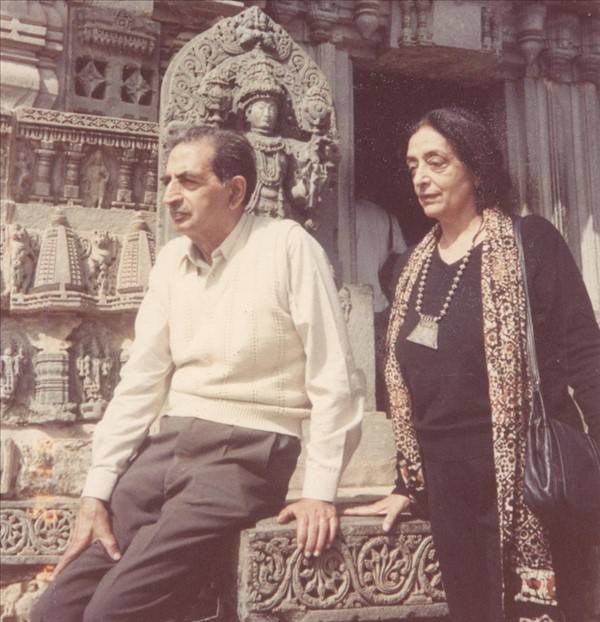
This is a photograph of journalist Mazhar Ali Khan and his wife Tahira Mazhar Ali Khan, Pakistan’s pre-eminent women’s rights activist. She was the daughter of Sir Sikandar Hayat Khan. As a teenager Tahira had been expelled by Queen Mary College in Lahore for demanding that Jawaharlal Nehru, leader of the Indian National Congress, be invited to speak. The headmistress had objected on the ground that he was a man. “But what about Ram Gopal, the dancer, then? Was he a hermaphrodite?” she asked.
Tahira secretly maintained a correspondence with Nehru. He wrote back, discussing the freedom struggle against the British Raj and offering reading suggestions. Her letters are preserved in the Nehru Museum in Delhi but Nehru’s letters were destroyed after reading. Tahira was fearful that her father, a noted opponent of the Congress, might discover them.
Mazhar was the son of Nawab Muzzafar Khan, Sikandar’s first cousin and a member of the Punjab cabinet. On paper, their children seemed an ideal match. But Mazhar was a committed communist and Sikandar was not happy. He laid down a stipulation: Mazhar could only marry his daughter if he joined the Allied Forces in the Second World War.
Fortuitously for the couple, the Soviet Union was invaded shortly after and the Communist Party of India issued a directive that all its middle and upper class members should join the war effort. The couple were married, with Lieutenant Mazhar Ali dressed in his army uniform, before he went off to Italy to fight.
The marriage was a commitment both to love and to politics. It meant that Tahira established a distance from her own family, a brave thing to do in the 1940s, especially for an upper-class woman. Tahira and Mazhar’s lives were modest at first. “Our home may have been empty of material things,” she once told a family friend, “but my life with Mazhar was full in every way that mattered.”
Tahira secretly maintained a correspondence with Nehru. He wrote back, discussing the freedom struggle against the British Raj and offering reading suggestions. Her letters are preserved in the Nehru Museum in Delhi but Nehru’s letters were destroyed after reading. Tahira was fearful that her father, a noted opponent of the Congress, might discover them.
Mazhar was the son of Nawab Muzzafar Khan, Sikandar’s first cousin and a member of the Punjab cabinet. On paper, their children seemed an ideal match. But Mazhar was a committed communist and Sikandar was not happy. He laid down a stipulation: Mazhar could only marry his daughter if he joined the Allied Forces in the Second World War.
Fortuitously for the couple, the Soviet Union was invaded shortly after and the Communist Party of India issued a directive that all its middle and upper class members should join the war effort. The couple were married, with Lieutenant Mazhar Ali dressed in his army uniform, before he went off to Italy to fight.
The marriage was a commitment both to love and to politics. It meant that Tahira established a distance from her own family, a brave thing to do in the 1940s, especially for an upper-class woman. Tahira and Mazhar’s lives were modest at first. “Our home may have been empty of material things,” she once told a family friend, “but my life with Mazhar was full in every way that mattered.”

